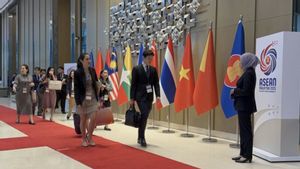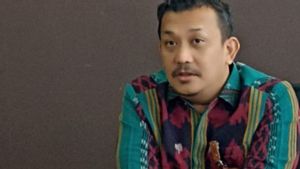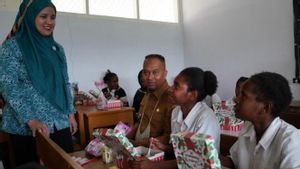KUPANG - The Governor of East Nusa Tenggara (NTT) Viktor Bungtilu Laiskodat said his party would soon issue a Regional Regulation (Perda) on the Determination of Tariffs for Entry to Komodo Island and Padar Island Tourism Areas amounting to Rp3.75 million.
"Indeed, there is currently no local regulation governing the determination of tariffs for entry to Komodo Island. The NTT Provincial Government will of course immediately establish a regional regulation as a legal umbrella for setting new tariffs for entry to Komodo," said Governor Viktor Bungtilu Laiskodat in Kupang as reported by ANTARA, Monday, August 1.
The Governor of NTT said it was related to the regulations governing the setting of tariffs for entry to Komodo Island and Padar Island.
Viktor Laiskodat explained that his party is still working on the Perda on Tariffs for Admission to Komodo and Padar Islands.
He is optimistic that the regional regulation will soon be realized along with socialization activities regarding the designation of Komodo and Padar Islands, West Manggarai Regency, as conservation areas that are limited to tourist visits.
"Socialization and evaluation are still ongoing and the drafting of local regulations is also still being carried out while making improvements. Soon there will be a local regulation," he asserted.
According to him, a fee of Rp3.75 million is the cost to enter Komodo and Padar Islands, while to other tourist areas, such as Rinca Island, the old tariff fee from the Ministry of Forestry and Environment of Rp75 thousand for domestic tourists and Rp150 thousand for foreign tourists.
Governor Viktor Laiskodat did not explain clearly regarding the old tariffs.
However, the Governor emphasized that the tariff setting of Rp3.75 million for tourists to Komodo and Padar is an effort by the NTT Provincial Government to maintain the natural ecosystem in the area, which has not been well managed.
Moreover, he said, in accordance with the results of the study that the capacity of tourists visiting the two tourist sites was only capable of as many as 290,000 people/year so that efforts to anticipate ecosystem damage needed to be done early.
The English, Chinese, Japanese, Arabic, and French versions are automatically generated by the AI. So there may still be inaccuracies in translating, please always see Indonesian as our main language. (system supported by DigitalSiber.id)













